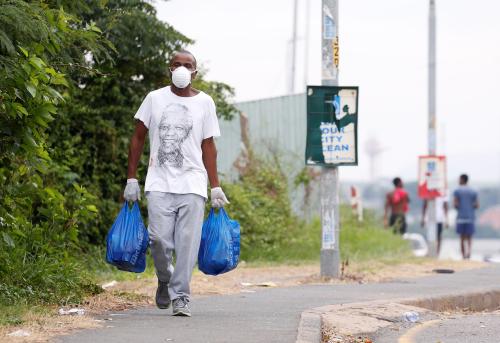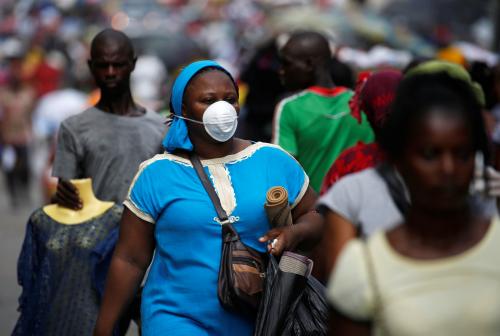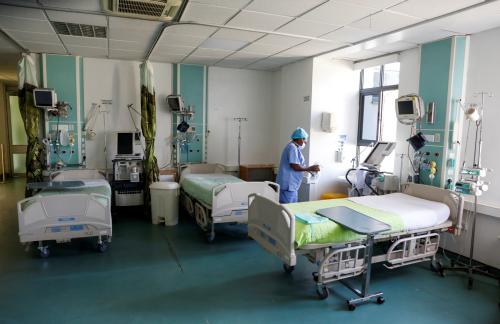The COVID-19 pandemic has stopped or reversed years of progress on the Sustainable Development Goals (SDGs), finds the 2020 Goalkeepers Report, published this month by the Bill and Melinda Gates Foundation. Importantly, the report argues that the pandemic has not been just a health crisis: It has had major negative effects on economies, education, food security, and health services not directly related to COVID-19, such as treatment for HIV/AIDS and support for family planning. Moreover, the report notes that the widest-ranging crisis, which has spread to every country regardless of the spread of COVID-19, is economic. In fact, the International Monetary Fund projects that the global economy will lose $12 trillion over 2020-2021 due to the pandemic.
So far, in many wealthy countries, spending on economic stimulus and social protection programs has helped reduce the economic impact of the pandemic on lives and livelihoods. At the same time, however, lower-income countries have been limited in their capacity to provide similar economic stimulus. In most cases, the size of the economic stimulus as a percent of GDP is higher in G-20 countries than in sub-Saharan African countries (Figure 1). Indeed, the average stimulus funding as a percent of GDP is around 22 percent in G-20 countries, and only around 3 percent in sub-Saharan African countries. Furthermore, since GDP is lower in most African countries than in most G-20 countries, the large differences in stimulus spending as a percent of GDP belie even larger differences in total stimulus spending. As the report says, stimulus spending in African countries is “a much smaller slice of a much smaller pie.”
Figure 1. Size of economic stimulus in response to COVID-19
Source: 2020 Goalkeepers Report, Bill and Melinda Gates Foundation.
At the same time, the report states that many lower-income countries are pursuing innovative strategies to help weather the effects of the COVID-19 pandemic. In Nigeria, for example, more than 100 private sector partners created the Coalition Against COVID, which has raised $80 million so far to support the Nigerian government’s response to the pandemic. Many African countries, including the members of the West African Economic and Monetary Union (Benin, Burkina Faso, Côte d’Ivoire, Guinea-Bissau, Mali, Niger, Senegal, and Togo), have either implemented new digital cash transfer programs or expanded upon existing programs to distribute money directly to their citizens.
Despite these innovations, given African countries’ generally low GDPs, there is a limit to how much governments will be able to spend to support their citizens. As a result, the report estimates that the pandemic has already pushed almost 37 million people worldwide below the extreme poverty line. The pandemic has also had major detrimental effects on progress related to other SDGs, such as health, education, and food security. The report argues that in order to reduce the damage done by COVID-19, countries across the world must collaborate to develop diagnostics, treatments, and vaccines to manage COVID-19; manufacture as many tests and treatment or vaccine doses as possible; and deliver these tools equitably to those who need them most. According to the authors, “We cannot rebuild health systems, economic systems, educational systems, and food systems—to say nothing of making them better than they were when this year began—until the virus that is tearing them all down is under control.”
The Brookings Institution is committed to quality, independence, and impact.
We are supported by a diverse array of funders. In line with our values and policies, each Brookings publication represents the sole views of its author(s).








Commentary
Figure of the week: Challenges facing economic stimulus in sub-Saharan Africa
September 16, 2020